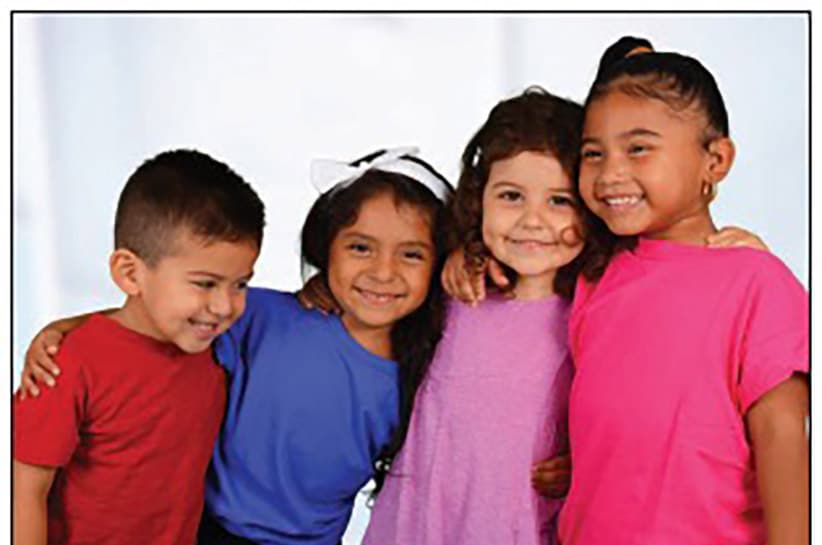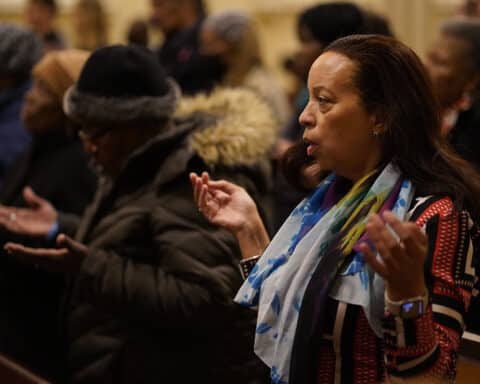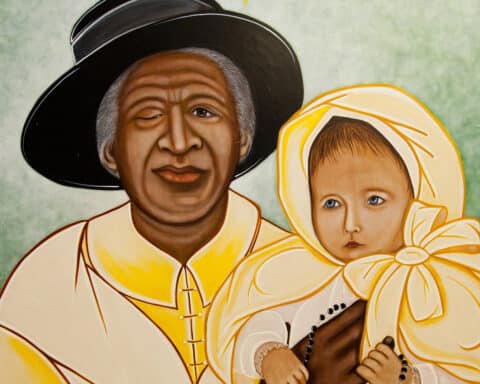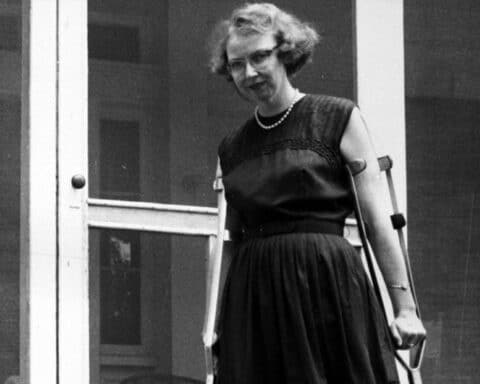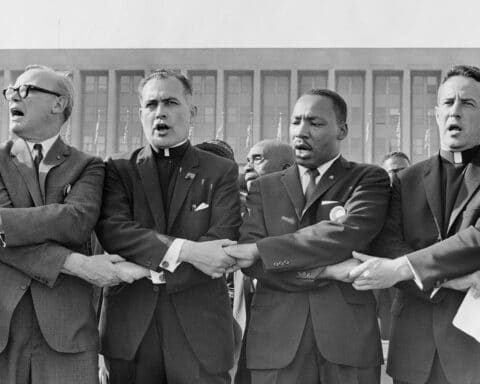Last October, I took my 4-year-old daughter on a pilgrimage to various civil rights sites in Alabama, visiting the holy ground where so many civil rights protesters showed their heroic devotion to the Christian faith and to our nation’s highest ideals. We stood where Rosa Parks caught her bus on the fateful day that sparked a movement. We walked in Selma, where John Lewis and his fellow protesters were violently assaulted. We visited where Martin Luther King Jr. lived and preached. And we saw the faces and names of those who gave their lives in the great struggle to overturn segregation and create a freer, more just nation.
My daughter did not understand everything she saw, but she began to understand our nation’s history of racial injustice, why it was wrong and why we are called to stand against racism.
The realization of race
This process of educating her is relatively new. Up until last fall, she was seemingly unaware of race. My wife and I have tried to create an environment that minimizes the effects of implicit racial bias that are found in our culture. Her baby dolls and toys are different races, as are the figures in the pictures and posters on her bedroom walls. A majority of her closest friends have been African-American or Indian-American.
But she never mentioned race — not until she switched from a very diverse Montessori school to our local, mostly white Catholic school. Within two weeks, she mentioned to my wife that all her friends were white now. So we entered a new stage. It was time to explicitly talk to her about specific stereotypes and bigoted claims, why they’re wrong and how to resist them.
It is not enough to raise kids who are not racist; we need to try to raise kids who are anti-racist. So we traveled to Birmingham, Selma and Montgomery.
It’s not always easy to talk about these issues. At the 16th Street Church in Birmingham, it was difficult to explain why someone would bomb a church and kill four little girls. It can be difficult as adults to comprehend such evil.
But the importance of having these talks and instilling these values was demonstrated not only by visiting sites celebrating great civil rights heroes but also by the other primary tourist attractions we happened to walk by: memorials of Confederates who fought to preserve slavocracy. The persistence of these symbols and continued celebration of the “Lost Cause” was chilling and a reminder that much work remains to be done to eradicate racism and build a more just society for all.
There is something beautiful about the innocence of a child who doesn’t know anything about race. It points to the communion found in the kingdom of God, where there are no divisions or injustice because of differences in people’s physical appearances. But here on earth, working for the kingdom means combating bigotry and overturning racial injustice.
Our troubled time
Racism is resurgent at home and around the world. We all saw it in Charlottesville, Virginia, where neo-Nazis and other bigots rallied to preserve the legacy of the Confederacy, prior to an act of terrorism perpetrated by a white supremacist. In Poland, 60,000 people took to the streets at a far-right rally with signs calling for “White Europe” and other extremist and racist messages.
President Donald Trump, who noted that there were “some very fine people” at the Charlottesville rally, recently disparaged immigrants from Haiti and Africa, using racist, vulgar rhetoric. Archbishop John C. Wester of Santa Fe, New Mexico, responded by saying, “Those kind of quotes reflect bigotry, and bigotry is just wrong, period.”
But the problem is larger than racist individuals or these ugly incidents. For instance, in recent years, there has been a widespread effort to disenfranchise voters, particularly black Americans. A federal appeals court struck down key parts of a 2013 North Carolina voting law, saying it targeted African-Americans “with almost surgical precision.” But more subtle efforts persist.
Our Catholic faith teaches us that universal brotherhood and sisterhood are rooted in reality, not the social construct that is race, but also that when racism is present, it cannot be ignored. The U.S. bishops have said that it is “not merely one sin among many,” but “a radical evil dividing the human family.” Structural racism is an assault on human dignity and the common good. All Catholics are called to oppose it.
This is not an issue of left or right, Republican or Democrat. It is a Christian imperative. As citizens, we must work together to dismantle and eliminate racial inequality and injustice in all its forms. And for those of us who are parents, we also have a responsibility to raise a new generation of Catholics who reject racism, to teach our children to be active participants in this revolution of solidarity.
Robert Christian is editor of Millennial Journal. He writes from Maryland.

